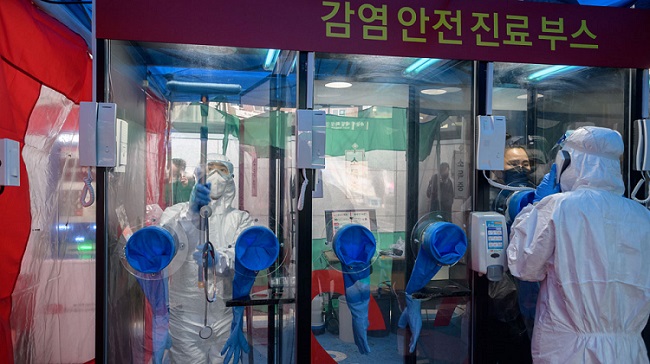
Year 2020 will be remembered as the monumental year for everyone across the world. A seamless connection among countries in the globe stimulated the rapid spread of a contagious Coronavirus and the disease caused by it– officially termed as COVID-19, halting almost every global citizen’s daily life.
I am one of them, trying to do my best to be voluntarily quarantined and maintain a social distance in public spaces. South Korea, where I live, had the second highest number of patients after China in February. Strangely, despite this mysterious virus’ import the public did not fear or panic about this catastrophe. Instead, people in South Korea put their trust in the healthcare authorities, experts and in the government’s measures.
For sure, it’s still too early to hail the South Korean government’s effort to stop the spread of Coronavirus. Still, the country’s strategies have been highly applauded by the Western countries such as the US, Canada and France, and also by the WHO. There are so many news reports that came out within last two weeks from the US which were positive and talked about how well South Korea paved its way to prevent the wildfire of a nationwide contagion. Positive tones are still dominant in the international media’s coverage that talk about South Korea as a model country for Coronavirus prevention strategy. Yet, there are voices that talk about ignored individual rights. For example, most European countries are careful in terms of revealing a confirmed case’s private information that can be tracked.
Many pundits have maintained, via a wide range of channels, that this year’s Coronavirus disaster will affect many aspects of society in the afterward. Amongst them, I would like to stress the disruption of fundamental human rights as protective concepts in democratic countries. The South Korean model is summarized in three terms, “trace, test and treat.” I would also like to discuss three types of contested human rights in the crisis times of COVID-19. Even a BBC report discussed about these issues.
Tracing: Public Interest Defense vs. Privacy Protection
The concerns about violation of one’s privacy were raised in both domestic and abroad quarters. Domestically the National Human Rights Commission of Korea argued that the detailed information about a patients’ location could undermine their rights of privacy protection. To illustrate, the initial stage of spreading in early March, the third confirmed case’s tracking information were widely reported through the mainstream media, and the patient had to be in suffering from the unchecked rumors about his private life. Germany, for instance, has recently discussed the Singaporean style Coronavirus tracking application. It should heat the discussion that there are so many European citizens who are feeling very uncomfortable about invading their privacy, and actually, it violated the related EU’s privacy law. However, as the spread of the Coronavirus is uncontrollable, public interest defense is treated more importantly than individual privacy, which is very unusual in liberal democratic countries like most of the West and North European countries. Some experts warn that authoritarian control could be abused, and actually, Russia and the Philippines’ draconian and charismatic leaders executed their stringent measures invading human rights.
Testing and Treatment: Universal Health Care vs. Privatized Health Care
One of the highly regarded South Korea’s strategies against COVID-19 outbreak is its fast, early, and universal test and treatment. At the beginning of spread, the administrative control tower, Korea Center for Disease Control and Prevention (KCDC), rapidly outsourced development of the diagnostic kit to private companies and came up with creative and effective testing centers like drive-through or walk-through centers to enact these measures. However, I would like to emphasize the other side rather than the speed or effectiveness. As the New York Times questioned that if the Korean model is transferable to other countries. Korean officials attribute their success to the unique nationalized universal health care system covering most of the test cost and treatment. From my observation as one of the international citizen suffering due to this Coronavirus turmoil in Korea, I strongly agree with the officials’ sayings. In essence, universal health care plays a pivotal role in leading the relative success in this battle. A profitable business in medicine and health science is often seized by private companies like in the famous US model. Some previous governments also tried to follow the US model because of the financial burden to the government budgets. But, the South Korean public were already aware of the benefits of a universal healthcare system so, thankfully, it could not proceed further.
Similar to the above mentioned contest in rights – privacy and public interest, the right to choose better quality treatment through privatization of healthcare system would be a reasonable argument, but this crisis has once again demonstrated that the right to get treated equally without any barriers as a citizen is much more critical than the privatized treatments.
Some people say that globally everyone shares the same feeling of grief from this unprecedented and even surreal situation. I believe every one person on earth should be secured from the invisible attack of viruses or whatsoever. Many country leaders declare that this time is like the wartime. Yes, we are fighting together against the same enemy, and it has been providing us with costly lessons about what to be the number one priority to all humanity.
